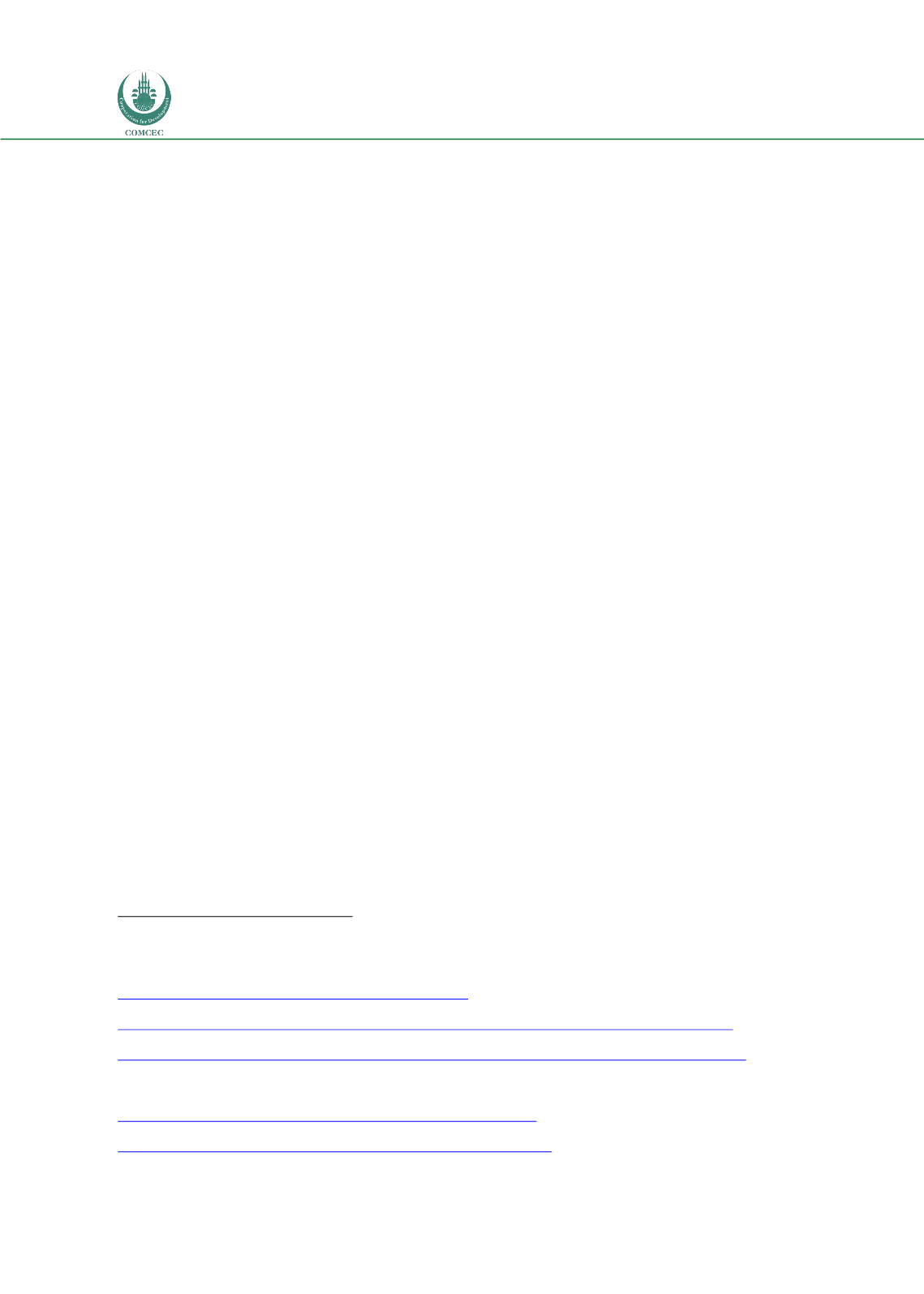

Forced Migration in the OIC Member Countries:
Policy Framework Adopted by Host Countries
68
Each section in the chapter begins with an overview of the current and historical forced
migration trends in the case study country. The section then assesses the legal frameworks for
providing refugee and other forms of protection in each country, as well as the systems that
have been put into place to implement the asylum regime. The analysis then turns to the
poverty alleviation efforts in the case study country that affect refugee and forced migrant
populations, with particular attention to policies regarding housing, employment, education,
and health care. Finally, the case study concludes by offering an evaluation of the impacts of
forced migration on the case study country and the forced migrant population, as well as any
protection gaps that have resulted from the country’s asylum regime.
3.1.
TURKEY
2
A huge flow of people seeking protection made Turkey the world’s largest host of
international forced migrants in 2015. By mid-2016, the number of people under various
forms of protection in Turkey was approaching 3 million. The overwhelming majority of them
came originally from Syria, but a substantial minority of over 260,000 originated in other
countries, chiefly Iraq and Afghanistan. With the exception of a tiny number of refugees from
Europe, none have a clear path to permanent status in Turkey. Nonetheless, Turkey has made
extraordinary efforts to provide basic services and a framework for a decent life for people
under its protection. The incorporation of such great numbers of forced migrants poses huge
challenges to Turkish communities, institutions, and budgets. Poverty alleviation is a primary
concern in approaching the needs and potential contributions of the protected populations.
In order to meet the basic needs of the most impoverished protected populations, the Ministry
of Family and Social Policy launched the
Yabancılara Yönelik Sosyal Uyum Yardım Programı
(Emergency Social Safety Net - ESSN) in cooperation with the World Food Programme, the
Disaster and Emergency Management Presidency, and the Turkish Red Cross. Approximately
one million individuals are expected to benefit from monthly cash transfers of 100 Turkish
Lira, set to begin in the first quarter of 2017. The program is funded by the European Union’s
Facility for Refugees in Turkey.
3
Syrians began receiving protection in Turkey in 2011, as “guests,” with the express condition
that their status would not lead to permanent residence in Turkey. Their status since then has
continually evolved: a law was passed in 2013 giving them formal “temporary protected
status” and access to social benefits
4
; a regulation granting permission to apply for a work
permit was adopted in January 2016. In July 2016, President Erdogan raised the possibility of
Turkish citizenship for at least some Syrians under temporary protection.
5
Still, in 2016, the
2
This chapter was written by Kathleen Newland and Brian Salant, and informed by original fieldwork in Ankara and
Istanbul in May 2016.
3
European Commission, “Questions and answers: Support for refugees in Turkey through the Emergency Social Safety Net
(ESSN),” (news release, September 8, 2016),
http://europa.eu/rapid/press-release_MEMO-16-2989_en.htm ;Cumhuriyet Gazetesi
, “Bir milyon Suriyeliye her ay 100’er
lira yardım,”
Cumhuriyet Gazetesi
, September 26, 2016,
http://www.cumhuriyet.com.tr/haber/dunya/606275/Bir_milyon_Suriyeliye_her_ay_100_er_lira_yardim.html ;Haber Türk
,
“Yabancılara Yönelik Sosyal Uyum Yardım Programı,”
Haber Türk
, September 26, 2016,
http://www.haberturk.com/yerel-haberler/haber/9559394-yabancilara-yonelik-sosyal-uyum-yardim-programi .4
Temporary protected status for Syrians is based on three principles: 1) Admission to the country based on open borders,
2) No return to the country of origin, 3) Meeting the basic and emerging needs of newcomers. See DGMM, “Geçici
Korumanın Unsurları,” 2015,
http://www.goc.gov.tr/icerik3/gecici-korumanin-unsurlari_409_558_1095 .5
“Erdoğan’dan Türkiye’deki Suriyelilere vatandaşlık açıklaması,”
BBC Türkçe,
July 3, 2016,
http://www.bbc.com/turkce/haberler/2016/07/160703_erdogan_suriyeliler















